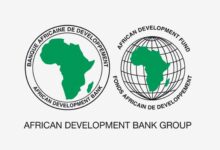UN Grounds Aid Flights in Nigeria Amid Funding Shortage

The humanitarian crisis in northeast Nigeria has been dealt a fresh blow as the United Nations Humanitarian Air Service (UNHAS) has suspended its fixed-wing operations in the country due to a lack of funding. The move, announced by UN Secretary-General’s spokesperson Stéphane Dujarric at UN Headquarters in New York, threatens to further isolate conflict-ravaged communities in Borno and Yobe states.
For nearly a decade, UNHAS—operated by the World Food Programme (WFP)—provided a vital lifeline, ferrying aid workers, medical supplies, and emergency cargo across regions where road transport is unsafe due to insurgency and banditry. In 2024 alone, its flights carried more than 9,000 passengers, while 4,500 humanitarian staff have depended on the service this year.
The Funding Collapse
The suspension comes amid what the WFP describes as its worst funding crisis in years. Margot van der Velden, WFP’s Regional Director for West and Central Africa, warned in New York that the agency had exhausted its food and nutrition resources in Nigeria and required at least $130 million over the next six months to sustain emergency aid for 1.3 million people.
“At the beginning of August, we may have to face the heartbreaking reality of telling people they will no longer receive aid—not because there is no need, but because there are no resources,” Velden said.
Without the $5.4 million required to keep UNHAS flights running, humanitarian access to hard-to-reach areas risks being cut off entirely.
The Humanitarian Fallout
The northeast remains the epicentre of a 16-year insurgency that has displaced over two million people, destroyed livelihoods, and left millions dependent on food assistance. Analysts warn that suspending humanitarian flights could:
- Cut off aid corridors, delaying delivery of food, medicine, and relief supplies.
- Expose aid workers to higher risks, as they would be forced onto dangerous roads plagued by ambushes.
- Worsen hunger and migration pressures, pushing vulnerable groups to make desperate choices, including recruitment by extremist groups.
The WFP has already signalled that emergency food and nutrition aid for 1.3 million people could end by July’s close unless fresh donor support emerges.
Nigeria’s Counterpart Role
Despite dwindling international support, Velden praised the Nigerian government as the largest financier of the current emergency response. However, development economists note that Nigeria cannot fill the gap alone. With competing domestic priorities—from fuel subsidy removal to foreign exchange reforms—the federal budget is already under strain.
The Bigger Picture: Donor Fatigue and Global Headwinds
The crisis highlights a dangerous shift in global humanitarian financing. Prolonged conflicts, coupled with multiple crises in Gaza, Sudan, Ukraine, and elsewhere, have stretched donor attention and resources thin. Nigeria, once high on the agenda, is at risk of falling down the priority list despite hosting one of the world’s most protracted displacement crises.
BRANDECONOMY Takeaway
The end of UNHAS flights is more than a logistical setback; it is a warning shot about the fragility of humanitarian financing in Africa’s largest economy. Without urgent funding, Nigeria’s humanitarian corridor could collapse, leaving millions cut off from life-saving aid.
Sustaining air access is not just about logistics—it is about keeping the northeast connected to hope, assistance, and survival.












